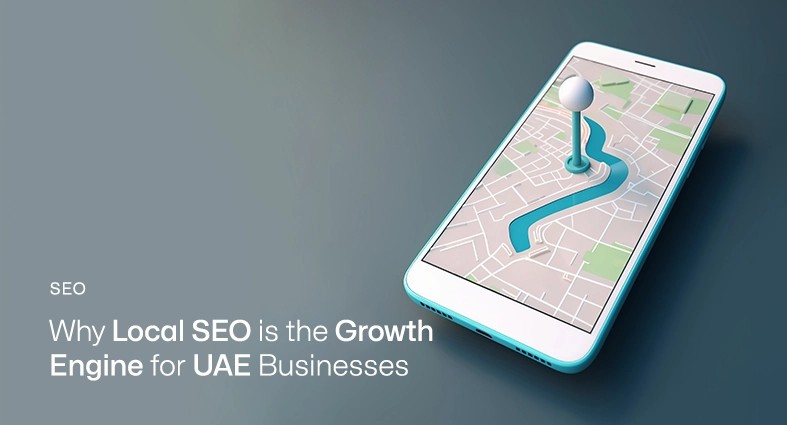In today’s digital age, having an online presence is crucial for businesses of all sizes. A well-designed website can act as a virtual storefront, providing 24/7 accessibility and offering potential customers the ability to research and purchase products and services at their convenience. With millions of websites on the internet, it is essential to ensure that your website is visible to your target audience. In this blog, we’ll explore some of the best SEO practices to help businesses unlock online success.
SEO Strategies
SEO strategies refer to the various techniques and tactics that businesses use to improve their search engine rankings and drive organic traffic to their websites. There are many different SEO strategies, and the best approach will depend on a variety of factors such as the type of business, the target audience, and the competition in the market. Some of the most effective SEO strategies include:
Content marketing
One of the most important SEO strategies and best practices is content marketing. This involves creating high-quality, informative, and engaging content that is designed to attract and engage your target audience. By creating useful and relevant content, you can increase your website’s visibility in search engine results pages (SERPs), drive traffic to your site, and establish your business as an authority in your industry.
Keyword research
Keyword research is the process of identifying the words and phrases that people are using to search for products or services related to your business. By identifying relevant keywords, you can optimize your website’s content and metadata to increase your chances of ranking for those keywords in search engine results pages.
Link building
Link building is the process of getting other websites to link to your site. When high-quality, authoritative websites link to your content, it can improve your website’s authority and relevance in the eyes of search engines. This can result in higher search engine rankings and increased organic traffic.
SEO Techniques
SEO techniques refer to a set of methods and practices that website owners and digital marketers use to improve their website’s visibility and rankings in search engine results pages (SERPs). These techniques are designed to help search engines understand the content and relevance of a website and determine whether it is a high-quality and authoritative source of information.
There are many different SEO techniques that businesses can use to optimize their websites for search engines. Some of the most important SEO techniques include on-page optimization, off-page optimization, technical optimization, and local SEO.
On-page SEO
On-page SEO refers to optimizing the elements on your website to improve its visibility and ranking on search engine results pages. It includes techniques such as optimizing title tags, meta descriptions, header tags, URL structure, and content optimization. Here are some of the key on-page SEO techniques that you can use:
Optimize your title tags: Your title tag is the first thing that search engines and users see when they come to your website. Make sure that your title tags are optimized with your target keywords and are relevant to the content on the page.
Use descriptive meta description: The meta description is the summary that appears beneath the title tag in the search engine results. Make sure that your meta descriptions are engaging, descriptive, and accurately reflect the content on the page.
Optimize header tags: Use header tags (H1, H2, H3) to structure your content and make it easier for search engines to understand the hierarchy and relevance of the content.
Optimize your content: Your content should be relevant, high-quality, and engaging. Use keywords and related terms throughout your content, but don’t overdo it. Focus on creating content that provides value to your users and answers their questions.
Off-page SEO
Off-page SEO, on the other hand, refers to the techniques that you can use to improve your website’s visibility and ranking through external sources. It includes techniques such as link-building, social media marketing, and influencer outreach. Here are some of the key off-page SEO techniques and best practices:
Build high-quality backlinks: Building high-quality backlinks from reputable websites is one of the most effective ways to improve your website’s ranking.
Use social media to promote your content: Share your content on social media platforms to reach a wider audience and drive traffic back to your website.
Monitor your online reputation: Use online reputation management tools to monitor your online reputation and respond to any negative reviews or comments. A positive online reputation can help improve your website’s visibility and credibility.
Technical SEO
Technical SEO covers various elements of website optimization, including website structure, website speed, website security, website indexing, and website crawlability. These elements are crucial for search engines to understand and crawl your website effectively. By optimizing technical SEO, you can ensure that your website is accessible and understandable by search engines, which helps to improve your search engine rankings and overall visibility. Some of the technical SEO include:
Website Structure: Having a clear and organized website structure helps search engines understand the hierarchy of your website. This includes having a clear and concise navigation menu, easy-to-understand URLs, and structured data.
Website Speed: Website speed is a critical factor in technical SEO. To improve website speed, you can optimize images, use a content delivery network (CDN), and minimize HTTP requests.
Website Security: Ensuring website security is important for both user experience and search engine rankings. Websites with SSL certificates and HTTPS protocols are preferred by search engines over non-secure websites.
Website Indexing: Ensuring that your website is properly indexed by search engines is crucial for SEO. This can be done by creating and submitting a sitemap to search engines and ensuring that your website has a robots.txt file.
Local SEO
Local SEO refers to the process of optimizing a website to rank for local search queries. Local SEO is essential for businesses that operate in a specific location and want to attract local customers. Local SEO involves optimizing various elements of a website, including on-page content, off-page content, and technical elements.
Local Keywords: Local keywords in your website content are essential for local SEO. This includes mentioning the city or region that your business serves in your website content.
Local Reviews: Encouraging customers to leave reviews on Google My Business, Yelp, and other review sites can help to improve your local search rankings.
Local Link Building: Building local links to your website can help to improve your local search rankings. This includes building links from local directories, local newspapers, and other local websites.
SEO Tips
To achieve success with SEO, it’s important to stay up-to-date with the latest trends and best practices. One of the most important tips to keep in mind is to prioritize content quality and relevance. This means creating valuable, informative, and engaging content that addresses the needs and interests of your target audience. Other key tips include optimizing your site’s metadata, using descriptive URLs, and incorporating keywords naturally and strategically throughout your content.
In addition to these tips, it’s also important to focus on link-building and social media engagement. This involves building a network of high-quality backlinks from reputable sites and engaging with your audience on social media to increase brand awareness and drive traffic to your site. Finally, regular performance tracking and analysis are essential for identifying areas for improvement and refining your strategy over time
SEO Ranking Factors
SEO ranking factors are the various factors that search engines take into account when determining the relevance and authority of a website. These factors include on-page and off-page SEO elements, such as the quality and relevance of the site’s content, the number and quality of backlinks pointing to the site, the site’s overall user experience and load times, and the site’s mobile optimization. Other important factors include the site’s domain authority, the use of structured data, and the site’s social signals and engagement metrics.
While the specific ranking factors used by search engines may vary, certain elements are widely recognized as essential for achieving high search engine rankings. These include creating high-quality, relevant, and engaging content; building a strong network of high-quality backlinks; optimizing your site’s metadata and URL structure; and ensuring that your site is mobile-friendly and optimized for user experience. Other key factors include the use of structured data and schema markup, regular site audits and optimization, and social media engagement and brand building. By focusing on these essential ranking factors, businesses can improve their visibility and attract more targeted traffic to their websites.
SEO Audits
SEO audits are essential for identifying areas of improvement and optimizing your website for better search engine rankings. These audits typically involve a comprehensive analysis of the site’s on-page and off-page SEO elements, including site architecture, content quality and relevance, backlink profile, metadata, URL structure, and user experience. By identifying areas for improvement and making necessary changes, businesses can improve their search engine rankings, attract more targeted traffic to their site, and increase conversions and revenue.
SEO Tools
There are a wide variety of SEO tools available that can help businesses optimize their websites for better search engine rankings. These tools range from keyword research and content analysis tools to backlink analysis and performance tracking tools. Some of the most popular SEO tools include Google Analytics, Google Search Console, SEMrush, Moz, Ahrefs, and Screaming Frog. These tools provide valuable insights into your site’s performance, identify areas for improvement, and help you track your progress over time. By leveraging the power of these tools, businesses can gain a competitive edge in the ever-changing world of SEO and digital marketing.
Conclusion
Digital marketing has become an indispensable aspect of modern-day business operations. Implementing effective SEO best practices can significantly improve your online visibility and attract more potential customers. By mastering the art of SEO techniques, strategies, and tips, businesses can stay ahead of the competition and achieve their desired online success.
Regularly conducting SEO audits and using the right SEO tools can help you identify and fix issues that may be hindering your website’s performance. Ultimately, by staying up-to-date with the latest SEO trends and continuously testing and iterating your digital marketing strategies, you can achieve and maintain online success for your business. So, start implementing these SEO best practices today and unlock the full potential of your online business! If you’re ready to unlock online success for your business, contact us today to learn more about our digital marketing services in Abu Dhabi. We will help you reach your target audience and achieve your business goals through effective digital marketing strategies.
services
Feel free to send us a message.
Please, share your thoughts, and let's chat over a cup of tea.


















